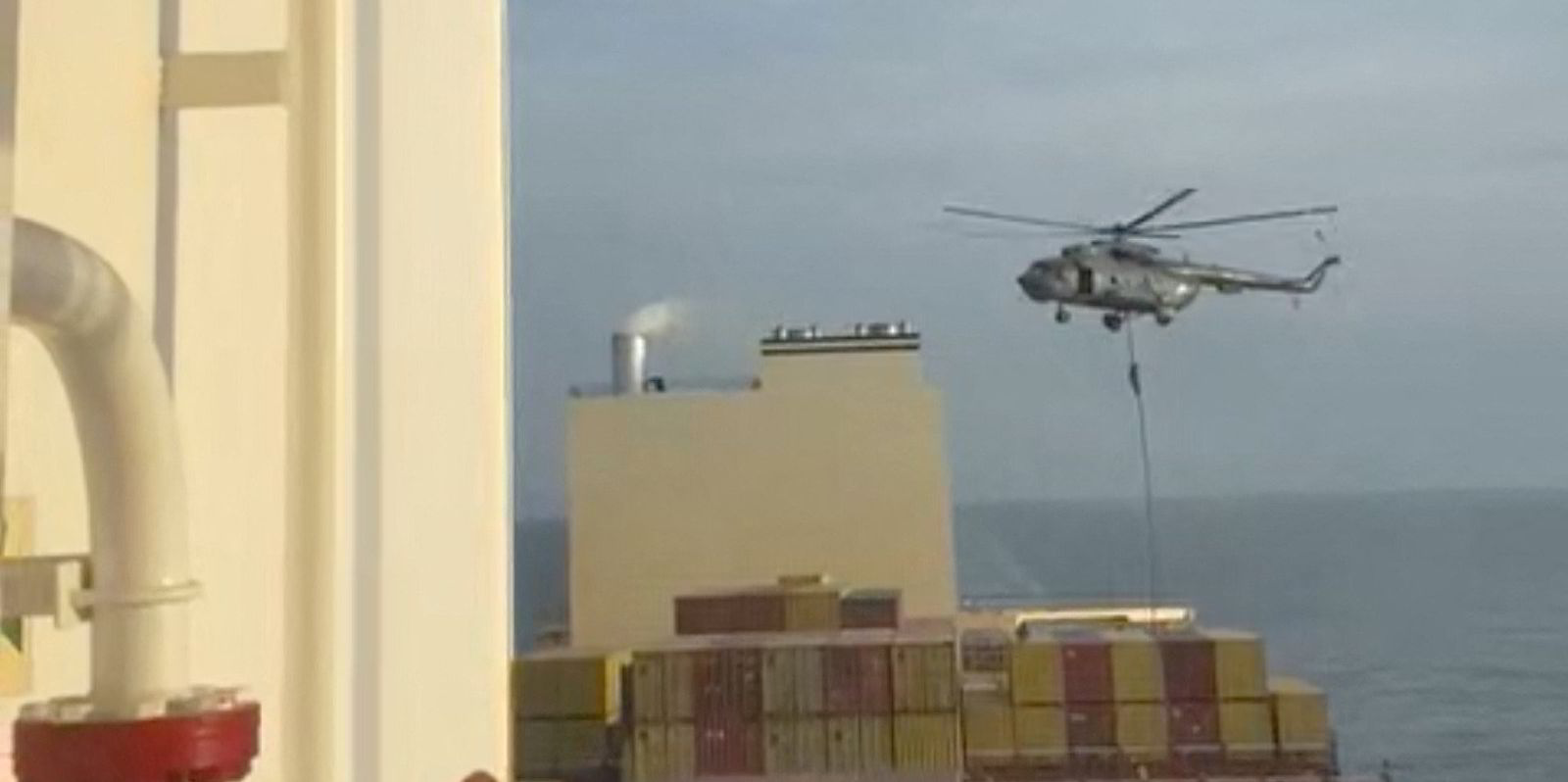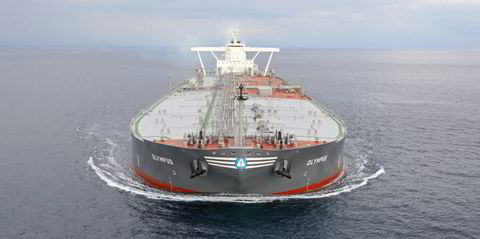The oil market’s muted response to Iran seizing a giant container ship and targeting Israel with a missile attack suggests it is unlikely Tehran will follow through with its threat to close the Strait of Hormuz, analysts said.
Operator MSC Mediterranean Shipping Company confirmed the 15,000-teu MSC Aries (built 2020) was seized early on Saturday in the strategically important strait and diverted towards Iran.
The seizure was followed by a 300 missile and drone attack on Israel but the largely unsuccessful strike and a major global diplomatic effort has reduced concerns of an escalation that could roil oil markets.
Last week, an Iranian military official reiterated long-standing warnings that Tehran was always capable of closing the Strait of Hormuz to protect its interests.
But Clarksons’ analysts said the closure would almost certainly result in a “strong military response” led by the US.
“While the possibility of the strait closing remains a concern, the likelihood of such an event occurring is regarded as low,” Clarksons said in its shipping weekly.
About 15m barrels per day of crude and 6m bpd of oil products transit the strait, accounting for about 20% of global oil production, Clarksons said citing US Energy Information Administration data.
Most Middle East Gulf exports have no viable alternatives, other than via limited pipeline capacity to the United Arab Emirates and Saudi Arabia that would allow them to avoid the strait.
“A hypothetical blockade that prevents 17m bpd of oil flow could, in our opinion, possibly drive oil prices to between $200 and $250 per barrel,” it said.
“In the event of a closure, oil traders and refineries are likely to rush to hoard oil. Tanker freight rates would likely skyrocket as a result of this panic before market demand eventually declines.”
On Monday, oil prices fell as Western governments urged Israel not to launch a major retaliatory attack against Iran.
Most of Iran’s missiles and drones were shot down and the handful that broke through caused limited damage. Iran said the attack was retaliation for an airstrike on its Damascus, Syria, consulate, widely attributed to Israel.
Brent Crude oil futures fell by a dollar to $89.44 a barrel with West Texas Intermediate also down by a $1 to $84.61, according to Morningstar.
Arctic Securities said the market breathed a “sigh of relief” that the impact of Iran’s unprecedented attack on Israel was not worse.
It said the attack suggested Iran was not keen on a regional escalation. But it added that the next step by Israel was now crucial.
“Tension in the oil market is unlikely to go away quickly, however, as the crossing of lines from both Iran and Israel means that the overall situation is more fragile. The risk of something unintended happening has thus increased,” Arctic senior oil and tanker market analysts Ole-Rikard Hammer said.
Fearnley Securities said that even if the situation calms, tanker rates will still tend to increase.
Analysts Oystein Vaagen and Fredrik Dybwad said they did not expect the impact on shipping from the disruptions in the Red Sea to reverse any time soon.
Read more
- Houthi attacks open Red Sea as Russian oil shipment corridor as Western and Chinese owners pull back
- Houthis confirm strike attempt on Maersk ship and targeting of MSC vessels
- US shoots down Houthi missile ‘likely’ targeting Maersk container ship off Yemen
- Iran threatens to shut down vital Strait of Hormuz shipping route as tensions flare
- EU naval chief: Extra warships needed in Red Sea to defend shipping from Houthi rocket attacks





